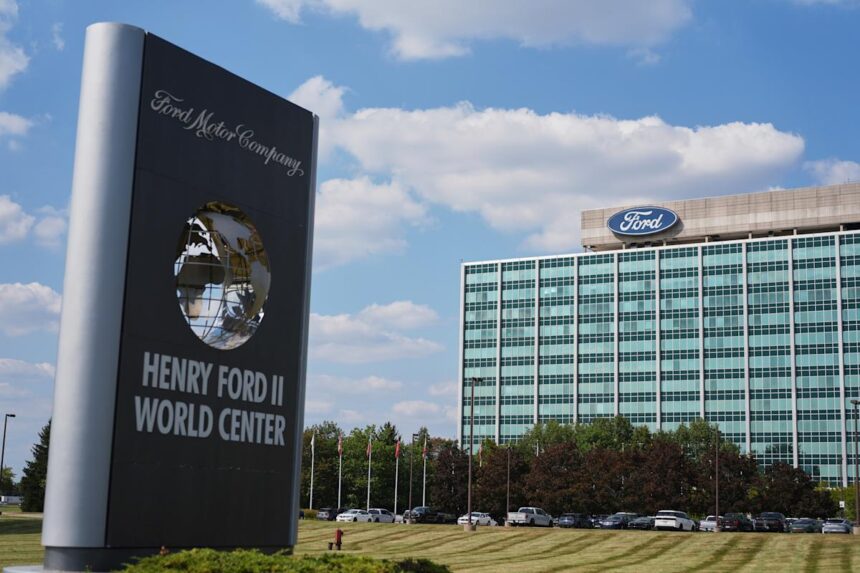Ford Motor Company is preparing for a significant transition, as it plans to move its headquarters for the first time in 70 years. The automotive giant will relocate just three miles away in Dearborn, Michigan, to a state-of-the-art facility that is set to open in November. The new structure, which will be known as Ford World Headquarters, spans 2.1 million square feet, making it a prominent addition to the company’s long-standing presence in the area.
The current headquarters, situated at 1 American Road and popularly referred to as “The Glass House,” was opened in 1956. At the time, it was one of the largest single-occupancy office buildings in the United States. Ted Ryan, Ford’s heritage and brand manager, indicated that the legacy of the 1 American Road address will continue with the move, emphasizing the company’s commitment to forward-looking product development.
The strategic design of the new headquarters aims to foster collaboration and innovation by colocating corporate leadership with design and engineering teams. This new campus will accommodate approximately 14,000 employees, all within a 15-minute walking distance from the main building. It promises modern facilities, including six design studios, a sprawling 160,000-square-foot food hall available to all employees, wellness rooms, spaces for mothers, and over 300 tech-enabled meeting rooms.
In the context of a shifting corporate landscape, Ford’s move follows a similar decision by General Motors, which is in the process of relocating from its historic headquarters along the Detroit River to a new office in downtown Detroit.
The site of the new Ford headquarters previously housed the Product Development Center—a notable location in automotive history where iconic vehicles like the Mustang and the F-Series trucks were developed. This site was once commemorated by President Dwight Eisenhower during its dedication in 1953, marking it as a pioneering moment in corporate history with one of the earliest uses of closed-circuit television.
The deep connection between Ford and Dearborn remains significant, as Ryan noted, “Dearborn and Ford are almost synonymous.” He emphasized the historical roots of the company in the area, citing the proximity of Henry Ford’s birthplace. As Ford prepares to unveil its new headquarters, it signals both a new chapter for the company and an enduring legacy tied closely to its hometown. Soon, thousands of employees will be welcomed into this modern facility, marking the beginning of a new era for Ford Motor Company.





